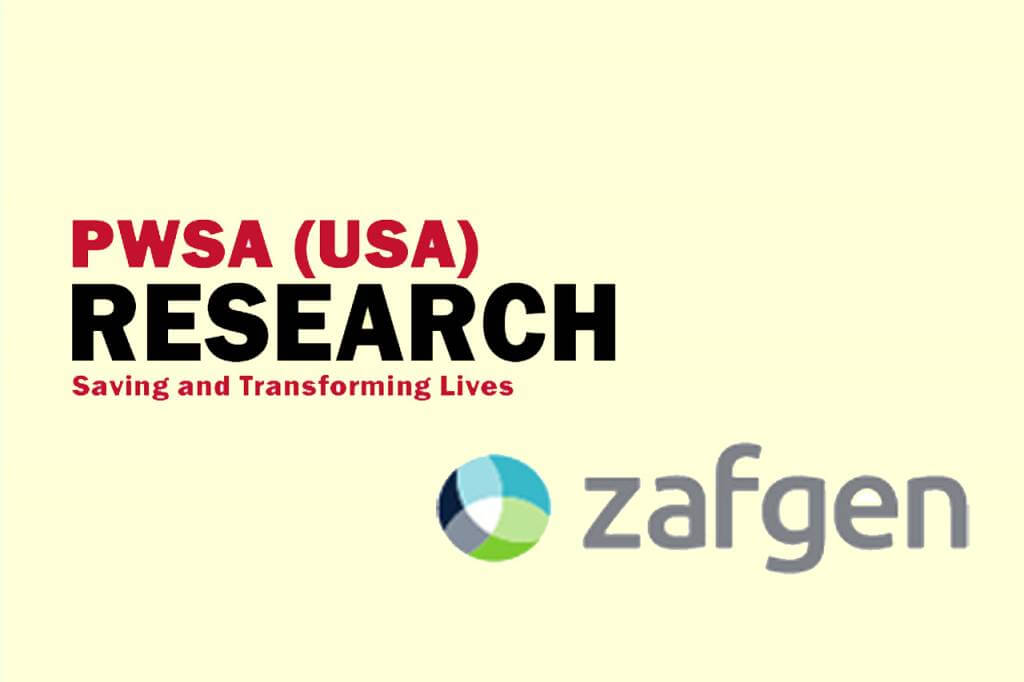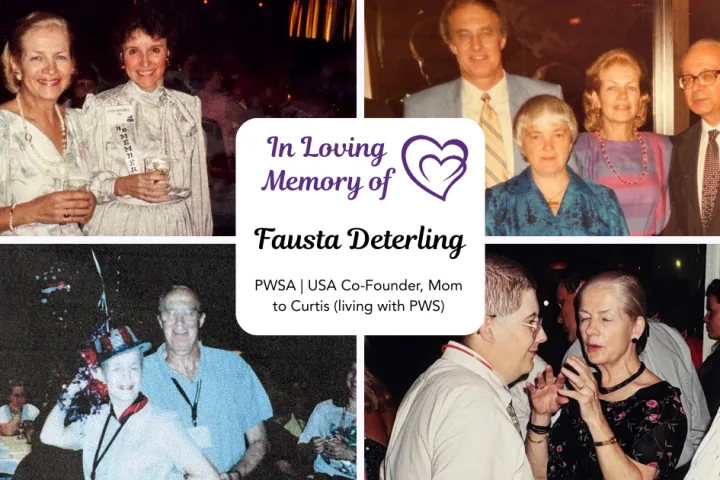I would like to assure our PWS members that both PWSA (USA) and FPWR have been involved with discussions with Zafgen and the FDA regarding safety issues on the Zafgen clinical trial. A “partial hold” means that the study can continue with additional safety monitoring. We are in full support of the additional safety monitoring and continuation of the trial. The additional monitoring will provide additional protection for patients enrolled in the trial.
We think it’s important to note three things about clinical trials in general:
1) Safety issues can emerge in clinical studies. The FDA, patient organizations, and the sponsoring company work diligently to protect all participants in a clinical trial, but clinical trials by definition are uncertain. Deaths in a clinical trial are highly unusual but serious adverse events can happen.
2) Serious adverse events can happen to individuals with PWS whether or not they are in a clinical trial. Just because an individual in a trial has an adverse event does not necessarily mean the drug caused it. Looking at recent sudden deaths in PWS reported to us at PWSA (USA), we are quite aware that there are several reasons for sudden deaths of people not on any clinical trials.
3) Without individuals willing to participate in clinical trials, we will never identify treatments that can help our community of loved ones. It’s important as a community that we continue to participate in clinical trials.
I want to especially thank Dr. Jim Loker for the extensive work he has done on the cardiac and vascular issues with PWS and the study of deaths that will be reported at the PWSA (USA) national conference in November. This information has been very valuable while we all search for an understanding of potential risk factors in PWS. The three of us (Jim Loker, Theresa Strong, and me) have been involved with this process and do understand the concerns of our families because we are PWS parents ourselves. My own son has enrolled in this clinical trial for the past 6 months and at this point he is definitely taking the drug. With the additional safety monitoring, I am comfortable in keeping him on beloranib.
Janalee Heinemann, MSW
PWSA (USA) Coordinator of Research & International Affairs





 Perry A. Zirkel has written more than 1,500 publications on various aspects of school law, with an emphasis on legal issues in special education. He writes a regular column for NAESP’s Principal magazine and NASP’s Communiqué newsletter, and he did so previously for Phi Delta Kappan and Teaching Exceptional Children.
Perry A. Zirkel has written more than 1,500 publications on various aspects of school law, with an emphasis on legal issues in special education. He writes a regular column for NAESP’s Principal magazine and NASP’s Communiqué newsletter, and he did so previously for Phi Delta Kappan and Teaching Exceptional Children. Jennifer Bolander has been serving as a Special Education Specialist for PWSA (USA) since October of 2015. She is a graduate of John Carroll University and lives in Ohio with her husband Brad and daughters Kate (17), and Sophia (13) who was born with PWS.
Jennifer Bolander has been serving as a Special Education Specialist for PWSA (USA) since October of 2015. She is a graduate of John Carroll University and lives in Ohio with her husband Brad and daughters Kate (17), and Sophia (13) who was born with PWS. Dr. Amy McTighe is the PWS Program Manager and Inpatient Teacher at the Center for Prader-Willi Syndrome at the Children’s Institute of Pittsburgh. She graduated from Duquesne University receiving her Bachelor’s and Master’s degree in Education with a focus on elementary education, special education, and language arts.
Dr. Amy McTighe is the PWS Program Manager and Inpatient Teacher at the Center for Prader-Willi Syndrome at the Children’s Institute of Pittsburgh. She graduated from Duquesne University receiving her Bachelor’s and Master’s degree in Education with a focus on elementary education, special education, and language arts. Evan has worked with the Prader-Willi Syndrome Association (USA) since 2007 primarily as a Crisis Intervention and Family Support Counselor. Evans works with parents and schools to foster strong collaborative relationships and appropriate educational environments for students with PWS.
Evan has worked with the Prader-Willi Syndrome Association (USA) since 2007 primarily as a Crisis Intervention and Family Support Counselor. Evans works with parents and schools to foster strong collaborative relationships and appropriate educational environments for students with PWS. Staci Zimmerman works for Prader-Willi Syndrome Association of Colorado as an Individualized Education Program (IEP) consultant. Staci collaborates with the PWS multi-disciplinary clinic at the Children’s Hospital in Denver supporting families and school districts around the United States with their child’s Individual Educational Plan.
Staci Zimmerman works for Prader-Willi Syndrome Association of Colorado as an Individualized Education Program (IEP) consultant. Staci collaborates with the PWS multi-disciplinary clinic at the Children’s Hospital in Denver supporting families and school districts around the United States with their child’s Individual Educational Plan. Founded in 2001, SDLC is a non-profit legal services organization dedicated to protecting and advancing the legal rights of people with disabilities throughout the South. It partners with the Southern Poverty Law Center, Protection and Advocacy (P&A) programs, Legal Services Corporations (LSC) and disability organizations on major, systemic disability rights issues involving the Individuals with Disabilities Education Act (IDEA), Americans with Disabilities Act (ADA), and the federal Medicaid Act. Recently in November 2014, Jim retired.
Founded in 2001, SDLC is a non-profit legal services organization dedicated to protecting and advancing the legal rights of people with disabilities throughout the South. It partners with the Southern Poverty Law Center, Protection and Advocacy (P&A) programs, Legal Services Corporations (LSC) and disability organizations on major, systemic disability rights issues involving the Individuals with Disabilities Education Act (IDEA), Americans with Disabilities Act (ADA), and the federal Medicaid Act. Recently in November 2014, Jim retired.